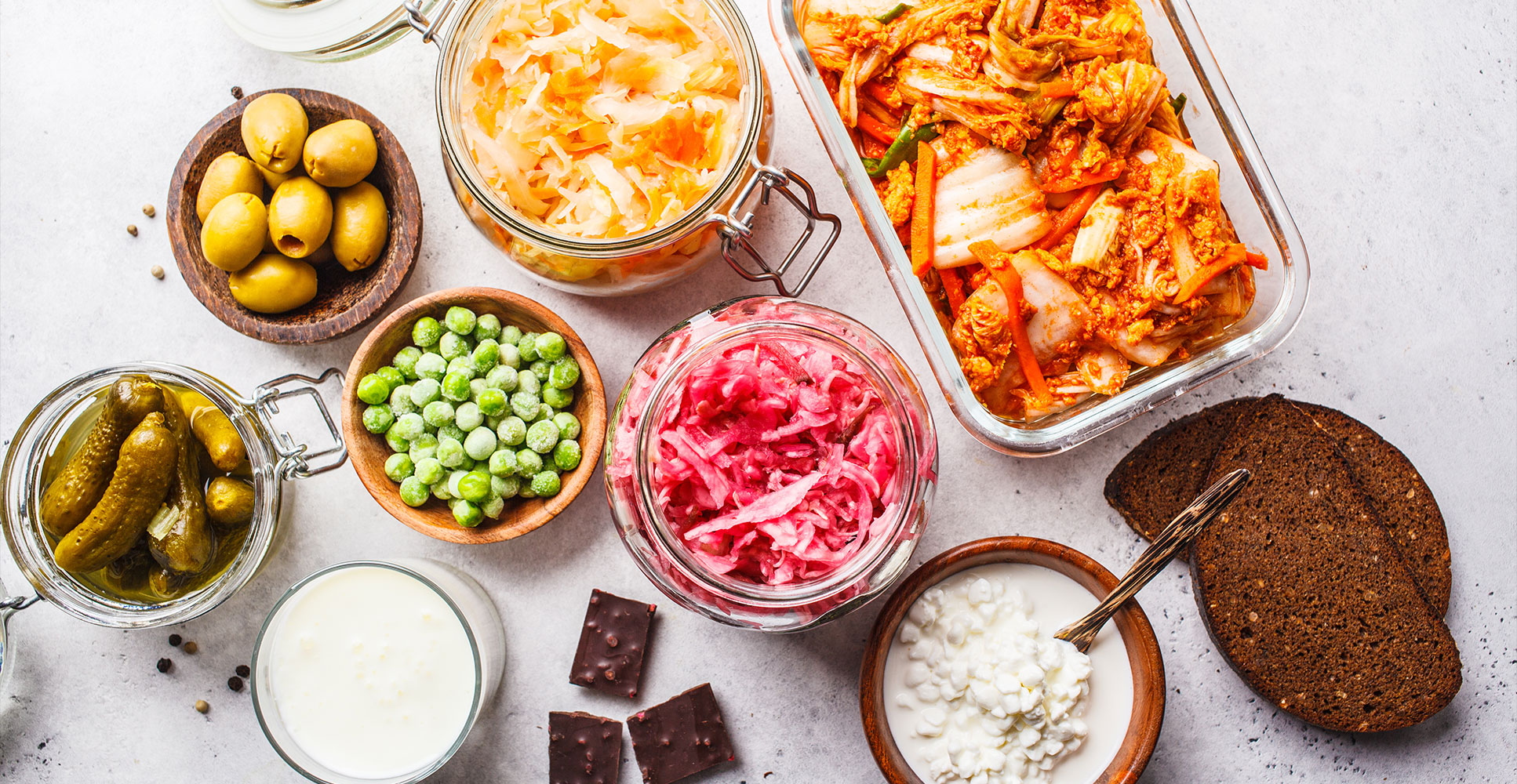
What are prebiotics?
- Prebiotics are from plant fibres found in many vegetables, fruits that favour healthy gut bacteria growth.
- Prebiotics are mainly those that contain complex carbohydrates, such as fibre and resistant starch.
- The short-chain fatty acids in prebiotics get absorbed into the bloodstream, which helps with various metabolic disorders.
Prebiotics vs Probiotics:
Prebiotics and Probiotics have their importance in gut health
Prebiotics are the carbs that your body can’t digest, hence reaching a large intestine where they serve as food for your gut’s healthy bacteria.
On the other hand, probiotics are live, healthy bacteria required for optimal gut health and digestion. We can get probiotics through diet and supplements.
Commercial probiotics have the names on the label as:
- Galactooligosaccharides
- Fructooligosaccharides
- Oligofructose
- Chicory Fibre
- Inulin
Prebiotics Foods:
You’ll find prebiotics in many fruits, vegetables, and whole grains like:
- Apples
The fibre Pectin present in apples can promote healthy gut bacteria and helps decrease harmful bacteria. It also helps in controlling appetite.
- Bananas
Unripe Bananas are rich in fibre. They are convenient to cook and tasty. They have a wide range of vitamins, minerals, and small amounts of inulin.
- Konjac Roots
Popularly known to reduce chronic constipation as the glucomannan fibre found in konjac root helps promote friendly gut bacteria, relieves constipation, and helps with weight loss.
- Spinach Greens
Rich in fibre, spinach green is added to salads, soups and any other dishes. It has anti-inflammatory properties, boosts your immunity, increases the friendly bacteria in your gut, and reduces constipation.
- Barley
The high beta-glucan fibre in barley can promote gut health. It can also lower cholesterol and blood sugar levels.
- Chicory Root
Chicory root is often used as a caffeine-free coffee replacement., especially for chronic constipation. It contains inulin fibre which helps in keeping gut bacteria healthy and can help control glucose levels.
- Flax Seeds
The fibre in flaxseeds promotes regular bowel movements, prevents constipation and helps in lowering LDL (bad) cholesterol.
- Garlic
Garlic is known for its medicinal values, and the sulphur compound present in garlic is proven to help promote good bacteria and prevent harmful bacteria from growing.
- Onions
Onions are rich in fructose oligosaccharides and inulin, which have the potential to increase healthy gut bacteria, boost your immune system and improve digestion.
Other foods that have prebiotic factors are:
- Legumes (Peas and Beans)
- Tomatoes
- Soybeans
- Wheat bran
- Asparagus
- Artichokes
- Berries
- Coco
- Fortified Yoghurt
- Bread
Benefits of Pro-Biotics:
- Promote Healthy Gut.
- Helps with weight loss.
- Fibre from prebiotic foods can increase calcium absorption.
- Helps to control Type 2 diabetes.
- Acts as mild laxatives.
- It keeps gut cells healthy, can prevent gut cancers.
If you have IBS (Irritable Bowel Syndrome), chronic acidity prebiotics can make your symptoms worse and it could lead to;
- Bloating
- Constipation
- Diarrhoea
- Excess Flatulence
People with SIBO or FODMAP intolerance should take a dietitian to advise before including prebiotics.
